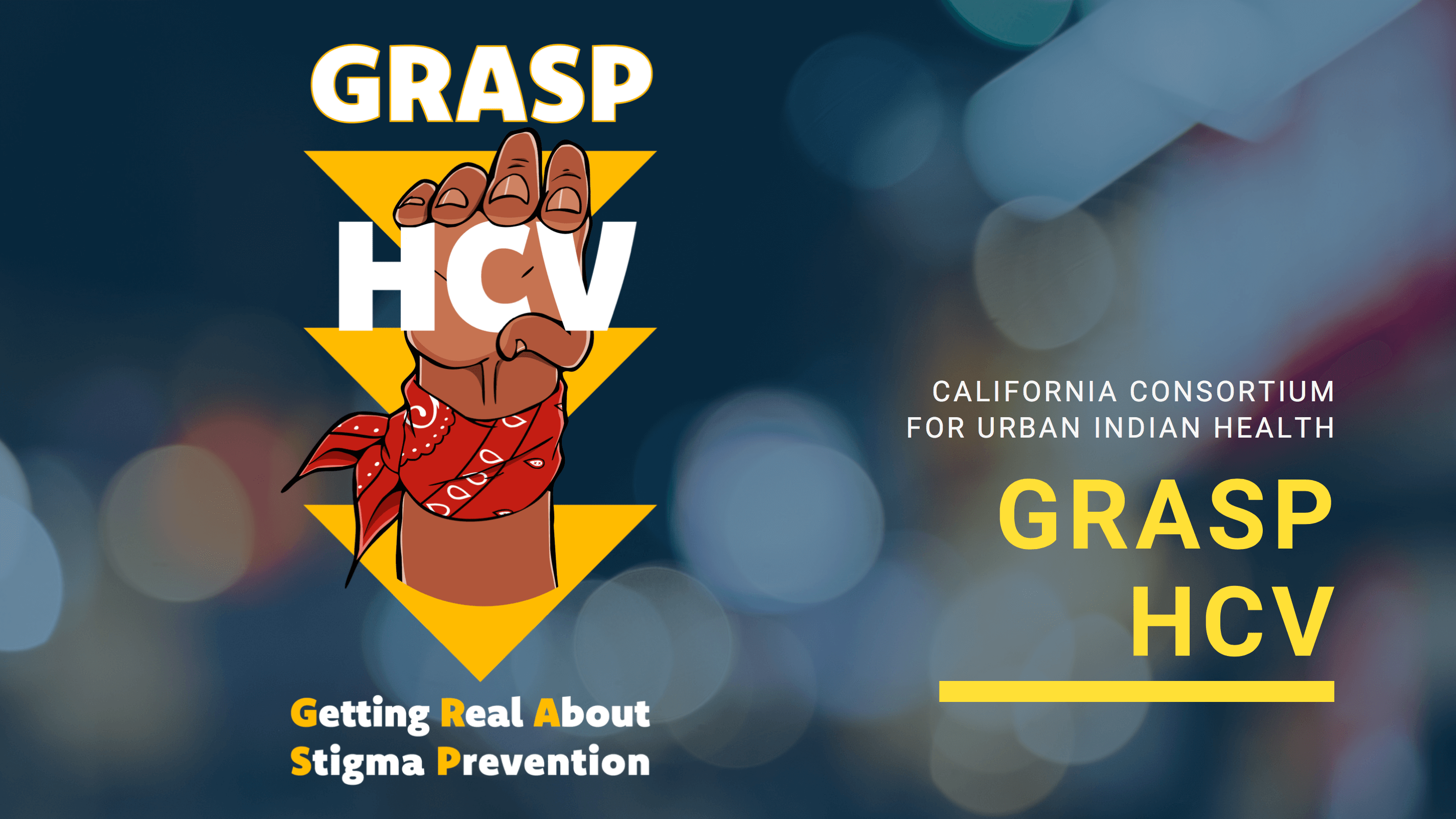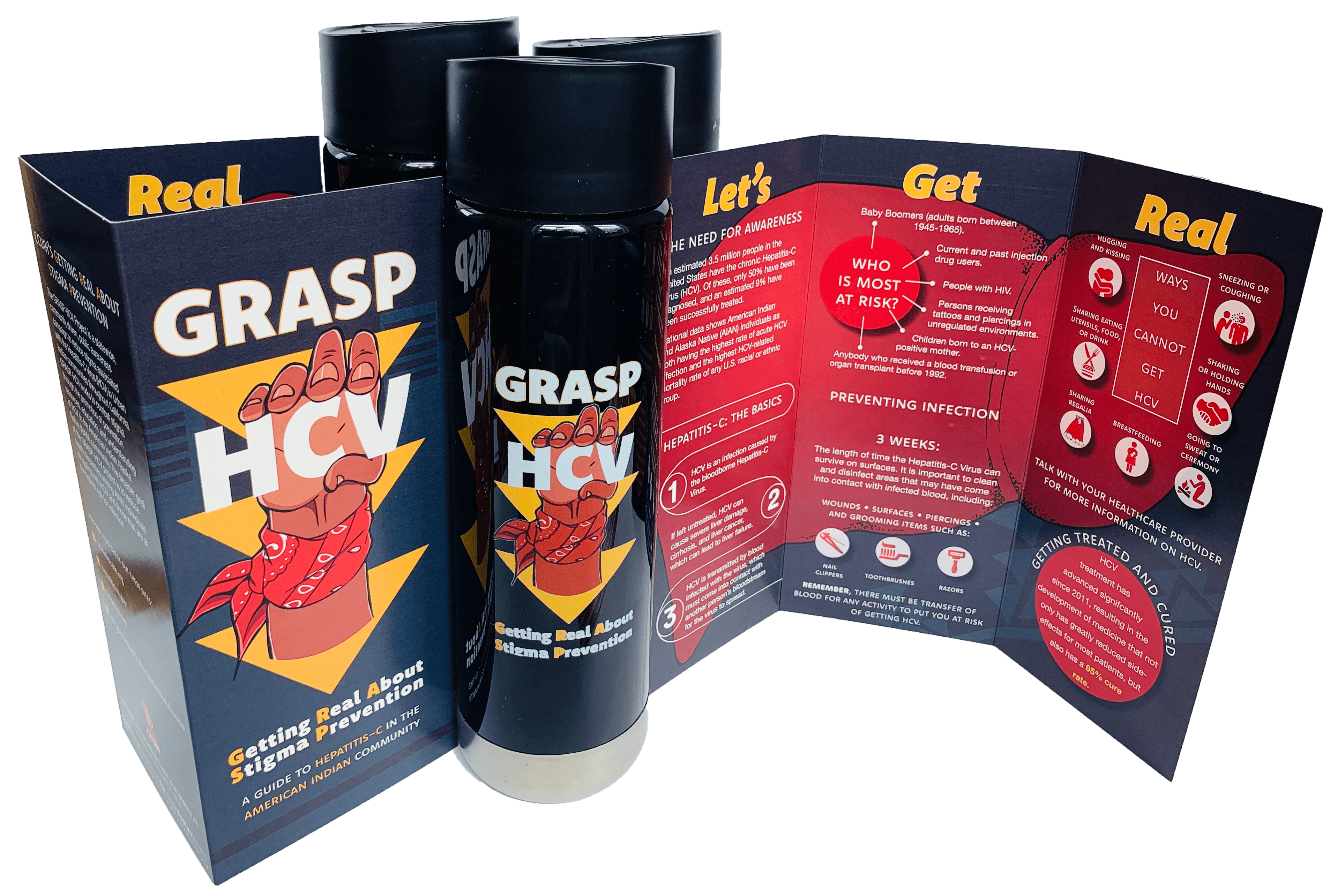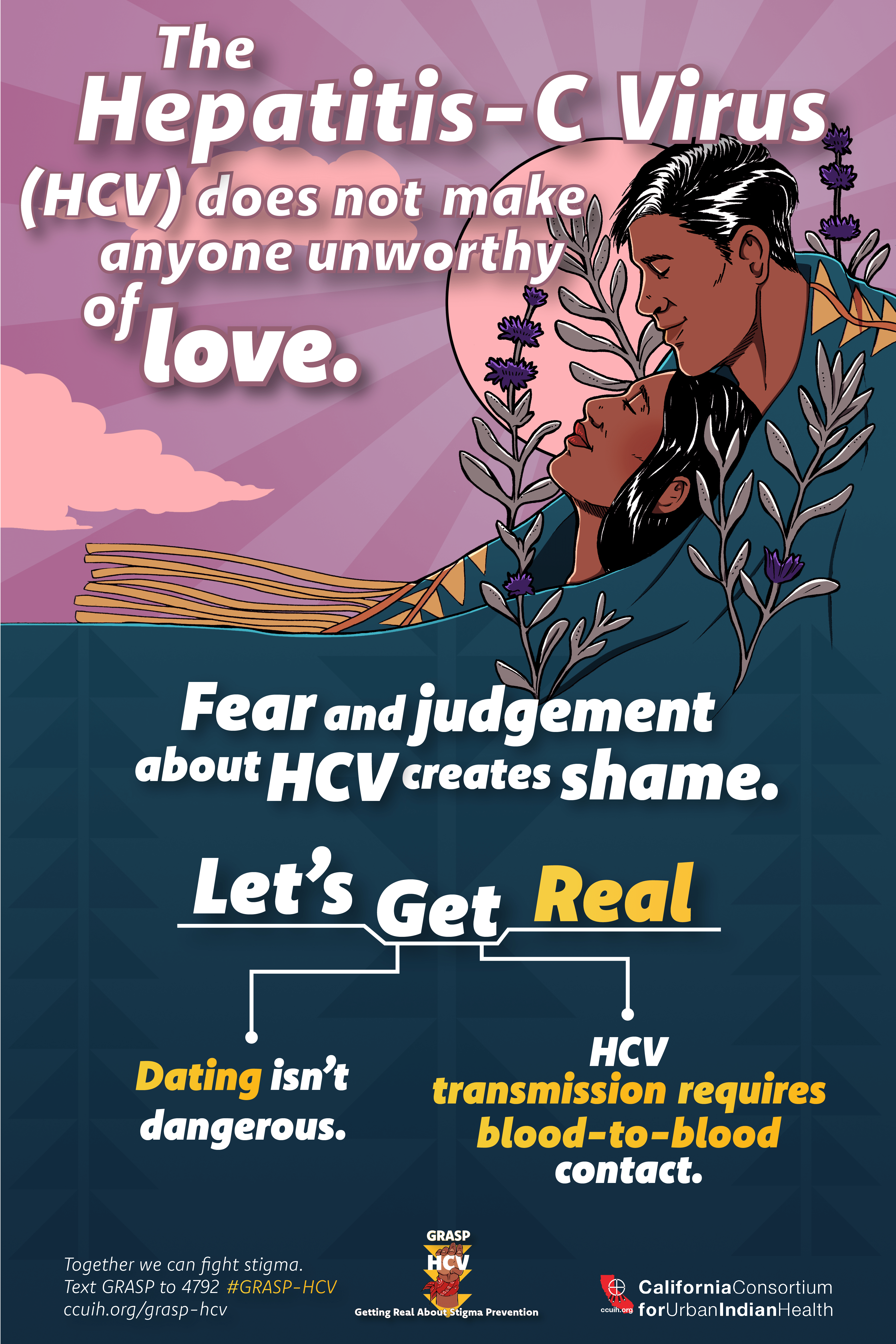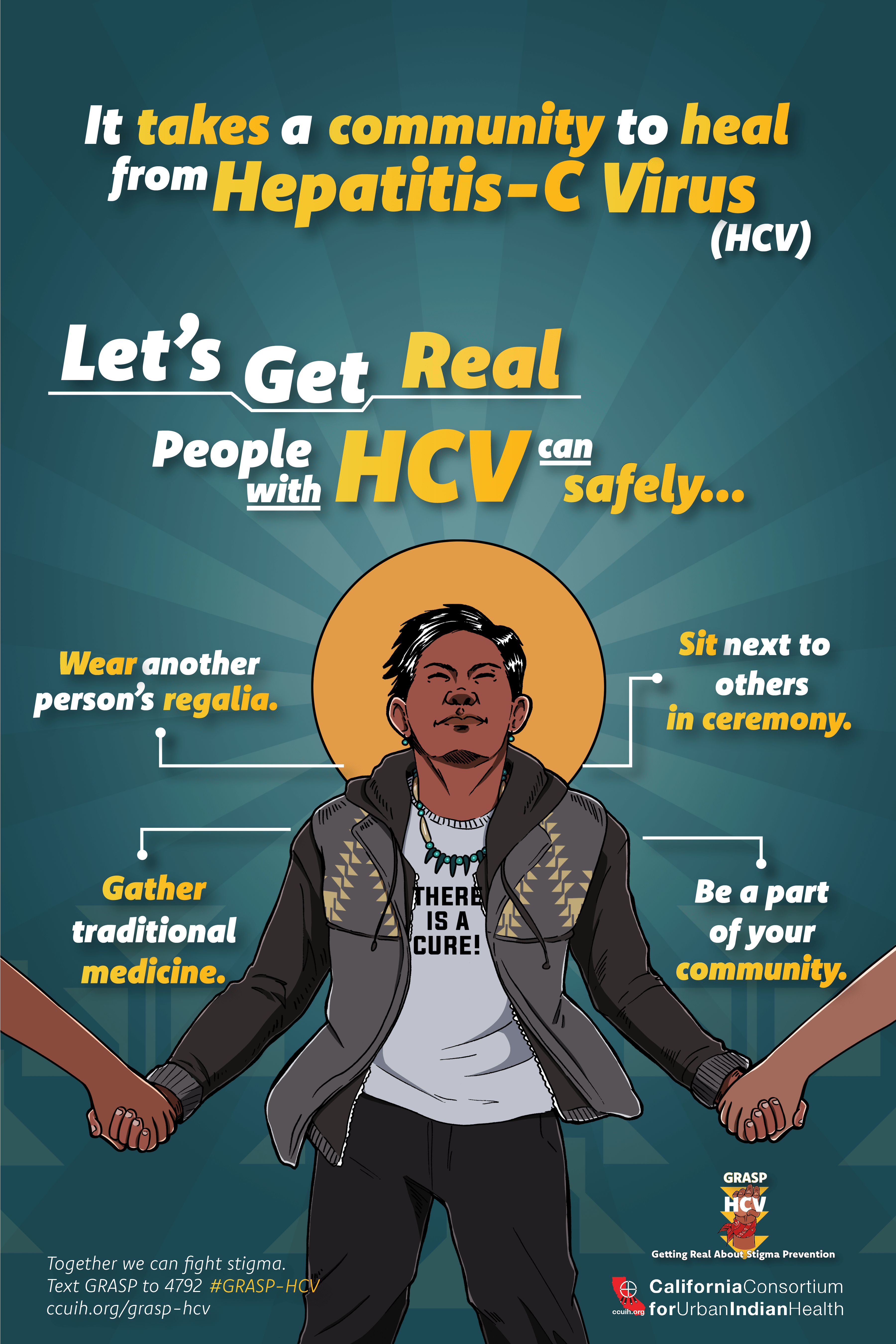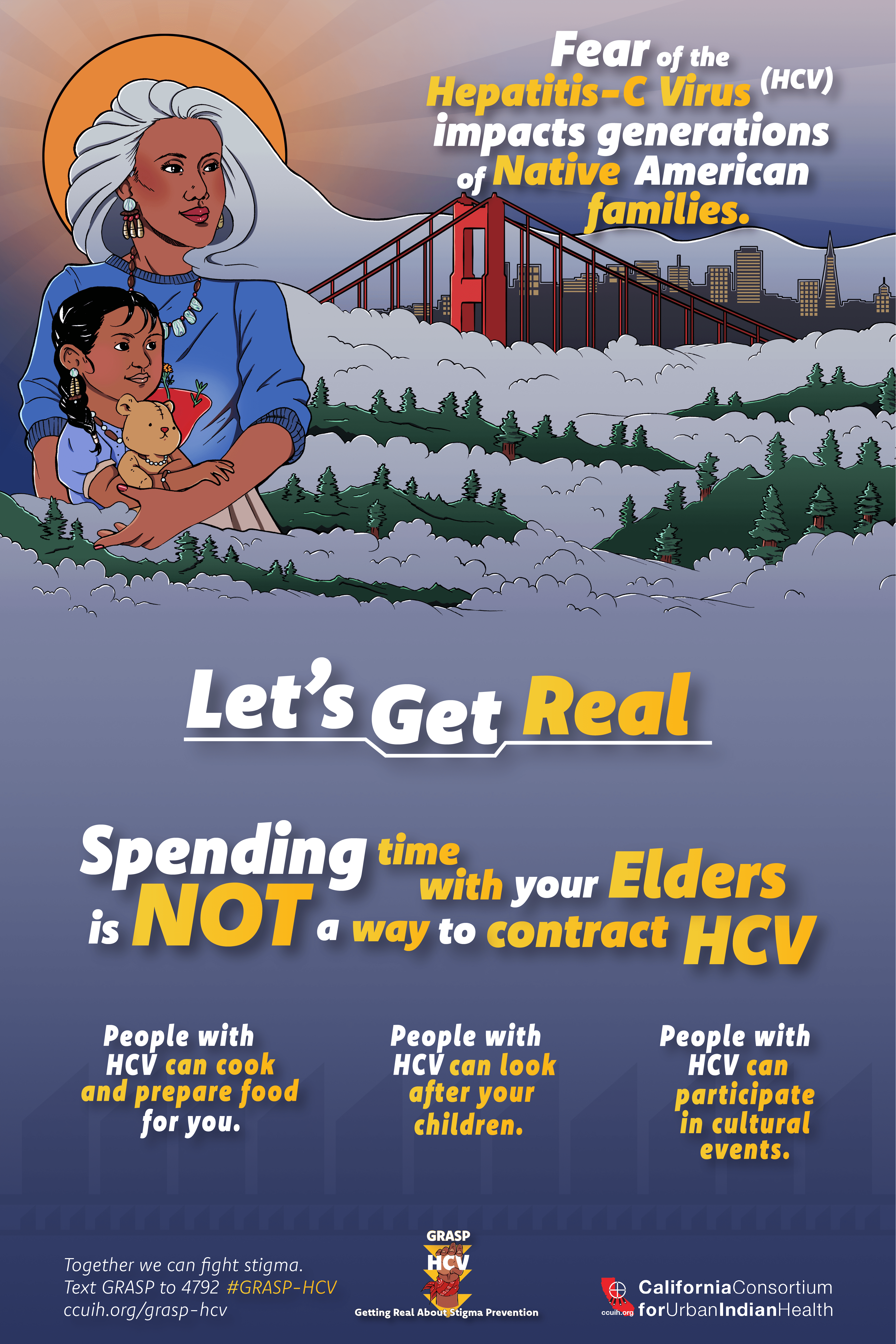THE CAMPAIGN
awareness. prevention. harm reduction.
community inspired
Launched in early 2019 with a community kickoff, the GRASP-HCV stigma reduction campaign aims to combat stigma in he California Urban Indian community by engaging community perspectives on HCV, and utilizing them to create educational and interactive solutions that will dispel fear, myths, and misinformation about Hepatitis-C and those community members living with it.
community driven
American Indian and Alaska Native individuals experience the highest rates of both acute HCV infection as well as HCV-related mortality. Undoing these disparities relies on educating those who are most at risk of contracting HCV of ways to reduce their risk, providing resources for testing and treatment, and eliminating the barriers that prevent individuals from taking advantage of these resources.
community informed
By designing and issuing a survey at multiple Native community events, we were able to increase our understanding of where knowledge about HCV was the strongest, which areas we needed to focus our education efforts, and determine the nature of HCV stigma in the community in order to better craft our campaign.
In addition to creating posters that speak to the stigma and we identified in our communities, we have also developed educational materials to provide clear information about HCV in order to help individuals have informed conversations about it, understand the urgency of this issue, know how to prevent it, and that treatment is possible.
educational
Materials
We are currently developing digital stories with individuals from the local Native community to share their stories of living with Hepatitis-C and getting cured to further increase understanding and compassion for those who have HCV.
Community
Engagement
In order to ensure community participation in the process of developing this campaign, we conducted a series of talking circles and conversations with members of the local Native community that not only allowed them to share their knowledge about HCV, but also engage in artistic visioning of what they understood to be priority issues and themes when talking about and educating about this issue with the wider community.
Presentations
GRASP-HCV will also include a presentation of data aimed at clinical service providers in order to understand how stigma impacts their ability to care for individuals with HCV, especially those who are most at risk for contracting HCV in potentially stigmatizing ways such as injection drug use.
Below, you can find a youth workshop presentation used to engage native youth about HCV and assess their knowledge.
grasp-hcv project resources
CCUIH’s GRASP-HCV Project is supporting the development of various materials and a culturally specific campaign to address the opioid epidemic in Indian Country. Free downloads of these resources are available below.
we’d love to share grasp-hcv
with your community!
Interested in our materials, presentations or ways you can engage your communities around Hepatitis-C? Please reach out to april@ccuih.org for inquiries.

